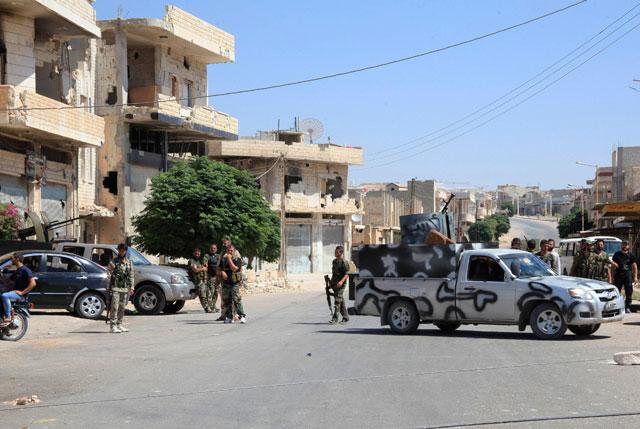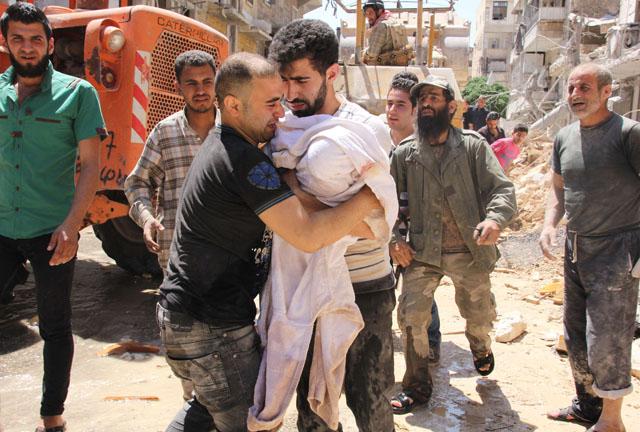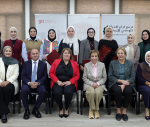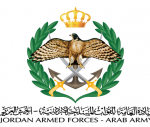You are here
Syria rebels, government report poison gas attack
By AP - Apr 12,2014 - Last updated at Apr 12,2014

BEIRUT — Syrian government media and rebel forces said Saturday that poison gas had been used in a central village, injuring scores of people, while blaming each other for the attack.
The main Western-backed opposition group, the Syrian National Coalition (SNC), said the poison gas attack Friday hurt dozens of people in the village of Kfar Zeita in the central province of Hama. It did not say what type of gas was used.
The Britain-based Syrian Observatory for Human Rights reported that people suffered from suffocation and breathing problems after the attack, apparently conducted during air raids that left heavy smoke over the area. It gave no further details.
State-run Syrian television blamed members of Al Qaeda-linked Nusra Front for using chlorine gas at Kfar Zeita, killing two people and injuring more than 100.
The TV report claimed the Nusra Front is preparing for another chemical attack against the Wadi Deif area in the northern province of Idlib, as well as another area in Hama. It did not explain how it knew the Nusra Front's plans.
Activists in the village could not be reached Saturday.
An activist from Hama who is currently in Turkey and is in contact with activists and residents told The Associated Press that the attack occurred around sunset Friday. The man, who goes with the name Amir Al Basha, said the air raids on the rebel-held village came as nearby areas including Morek and Khan Sheikhoun have been witnessing intense clashes between troops and opposition fighters.
An amateur video posted online by opposition activists showed a hospital room in Kfar Zeita that was packed with men and children, some of whom breathing through oxygen masks. On one bed, the video showed six children on a bed, some appearing to have difficulty breathing while others cried.
The video appeared genuine and corresponded to other AP reporting of the attack.
Chemical weapons have been used before in Syria’s three-year-old conflict. In August, a chemical attack near the capital, Damascus, killed hundreds of people. The US and its allies blamed the Syrian government for that attack, which nearly sparked Western air strikes against President Bashar Assad’s forces. Damascus denied the charges and blamed rebels of staging the incident.
The SNC called on the United Nations to conduct a “quick investigation into the developments related to the use of poisonous gas against civilians in Syria”. The coalition claimed that another chemical weapons attack Friday struck the Damascus suburb
of Harasta, though
state media did not report on it.
An international coalition aims to remove and destroy 1,300 metric tonnes of chemicals held by the Assad government by June 30 in the wake of the August attack. Syria’s government missed a December 31 deadline to remove the most dangerous chemicals in its stockpile and a February 5 deadline to give up its entire stockpile of chemical weapons. Assad’s government cited security concerns and the lack of some equipment but has repeated that it remains fully committed to the process.
In the northern city of Aleppo, Syria’s largest and one-time commercial centre, the Observatory and state television reported intense clashes Saturday, mostly near a main intelligence office in the city’s contested neighbourhood of Zahra.
Syrian state news agency SANA reported earlier Saturday that several mortar shells hit the government-held neighbourhoods of Hamidiyeh and Khaldiyeh, killing at least six people and
wounding 15.
Aleppo became a key front in the country’s civil war after rebels launched an offensive there in July 2012.
Related Articles
Syrian warplanes and helicopter gunships struck targets in a central village on Saturday in what appears to be preparations for a ground offensive on the rebel stronghold, activists said.
The US ambassador to the United Nations said Sunday that reports of a poison gas attack in a rural village north of Damascus were so far "unsubstantiated", adding that the United States was trying to establish what really happened before it considers a response.
A convoy of chemical weapons inspectors came under attack Tuesday while travelling to the site of a suspected chlorine gas attack in Syria, but all staff members were safe, the international watchdog agency said.



















